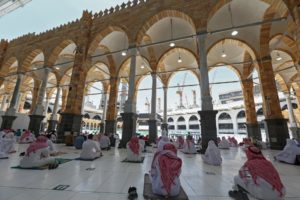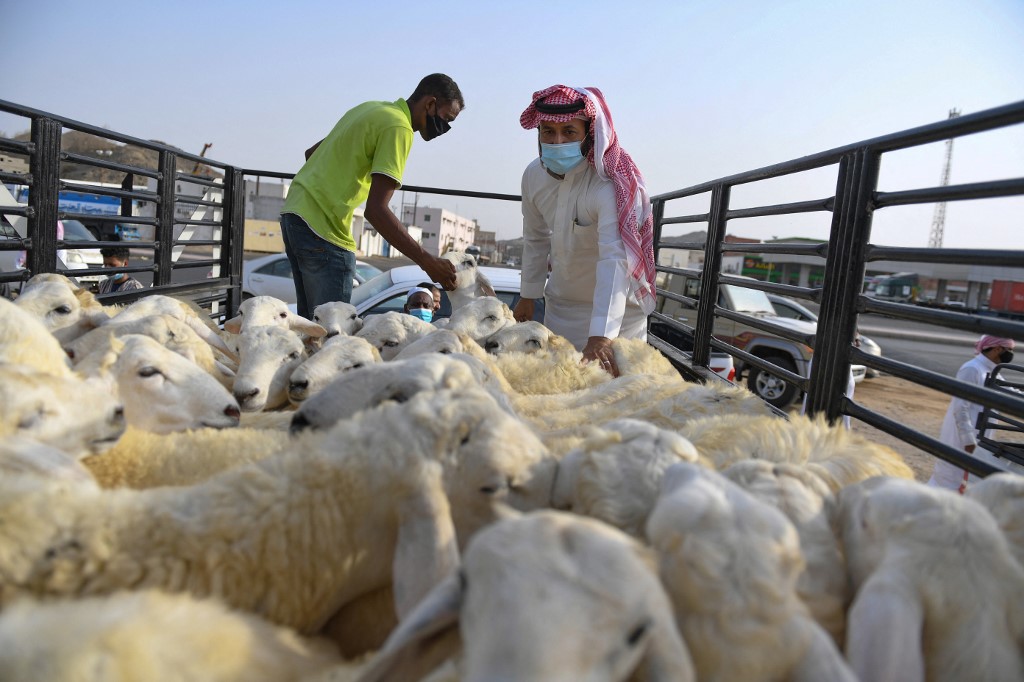São Paulo – The Feast of Sacrifice (Eid Al-Adha) this year takes place on July 20, according to the Islamic calendar, still with limitations to prevent the spread of coronavirus. One of the two most significant celebrations for Muslims, along with Eid Al-Fitr, when the Ramadan fast ends, the great feast of the Islamic calendar marks the end of the pilgrimage to Mecca. It is usually a reason for celebrations with friends and family and prayers in the mosques. About a quarter of the world’s population celebrates Islamic festivities.
Some countries, particularly in the Gulf, declared a national holiday from July 19 to 22. The pilgrimage to Mecca (Hajj) is now limited to 60,000 people, and only Saudis and residents can participate. Mosques are open, but with capacity reduced by about 50% and social distancing, depending on the country and its rules.
The festival is always celebrated on the tenth day of Dhu al-Hijjah, the twelfth month of the Islamic calendar, which begins with the confirmed arrival of a crescent moon. Most countries follow the official date set by Saudi Arabia.
Traditionally, the Feast of Sacrifice dates back to the Islamic tradition of the prophet Ibrahim (or Abraham). When directed by God to sacrifice his son Ishmael, he resigned himself and his son. They obey divine directions; when Ibrahim raises his sword, the Archangel Gabriel appears to them sent by God with a ram to be sacrificed in Ishmael’s place, having their faith rewarded.
Hence the tradition of slaughtering a lamb, in general, or otherwise an ox, camel, or goat to mark the date. Before the pandemic, Mecca received nearly three million pilgrims every year, so Muslims worldwide, in many cases, pay companies to perform a halal slaughter (according to Islamic rules), so offerings can reach countries in Africa, Asia, and even Brazil.

On the date, the Federation of Muslim Associations of Brazil (FAMBRAS) makes donations between Brazilians with a budget of their own and from many Islamic countries. “We have already asked for the slaughtering and the distribution to be made to the less favored population, both Muslims and non-Muslims, and they will receive fractionated halal meat, beef or lamb,” said Ali Zoghbi, vice-president of the organization. According to him, the distribution should occur between July 20 and 22 in about ten Brazilian states, with greater concentration in São Paulo and states with more slaughterhouses, mainly in the South and Midwest.
In addition to donations to communities in need, meat is traditionally shared between friends and family. “It is a blessed flesh that symbolizes the sacrifice of Ibrahim having the conviction to immolate his son, the confidence that God only does the best for human beings. It is this patience that we need, with the pandemic, perhaps Eid Al-Adha is one of the most critical moments because after everything that is happening comes hope, and this will serve as a learning experience in building a more dignified and better life, with more resilience,” said Zoghbi.
Read also:
- What you need to know about this year’s pilgrimage to Mecca
- Hajj pilgrims will be required to get vaccinated
- Brazilians go on Hajj, the world’s largest pilgrimage
In the mosques, Zoghbi says there is a special prayer made on the date by the religious authority, and after the collective prayers, a huge breakfast is usually served; however, because of the pandemic this year, it will not be.
The Feast of Sacrifice is, according to Zoghbi, a holiday similar to Christmas for Muslims and even limits a good part of the commercial routines of countries with an Islamic majority a few days before and after the festival.
In addition to the prayers in the mosque and the lamb’s slaughter, the Feast of Sacrifice is also a time of reflection for Muslims. “It is a moment of joy to think about the idea that God had mercy, the importance of understanding so this can be a model of behavior for the situations in our life. At home, we reflect and talk about it as a family and receive many greeting calls from friends and relatives, saying in Arabic something that means ‘may you be at peace every year,’ or ‘may you continue to be happy like this date sets for us every year,’” concluded Zoghbi.
Countries
The UAE has announced a holiday from July 19 to 22 for the public and private sectors during Eid Al-Adha. In Egypt, the public sector will have a holiday from July 19 to 24, and the private sector from 19 to 22.
In Oman, there will be a total lockdown from July 20 to 22, all commercial activities will be barred, and the flow of people and vehicles is prohibited as a precautionary measure.
Translated by Elúsio Brasileiro




